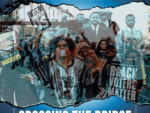Thousands of Alabamians who were barred from voting due to felony convictions, now have a chance to restore their rights to vote, thanks to a new Alabama law.
Gov. Kay Ivey signed legislation in May that defines and limits the number of state offenses that can be considered crimes of moral turpitude. Under Alabama’s constitution, individuals convicted of crime of moral turpitude are barred from voting; but until the Legislature acted this session, it was unclear exactly which offenses counted, and there were wide inconsistencies among Alabama’s 67 counties.
The new law specifically includes more than 50 crimes, including murder, rape, treason, and fraud, but the statute omits a host of crimes such as drug related and misdemeanor offenses that had in many parts of the state kept citizens from exercising their right to vote.
Executive Director Artur Davis has announced that in response to the new law, LSA has created an Opportunity and Empowerment Task Force to assist low income Alabamians who are eligible for free legal aid, with complying with the process for getting restored to the voting rolls. As Davis pointed out, there are two misconceptions that need to be addressed:
“First, there are some who think that a federally-funded legal aid organization can’t do this kind of work. I immediately reached out to Legal Services Corporation for guidance, and was pleased to see their response. Helping income eligible people reclaim their rights to vote is absolutely permissible and violates no rules or regulations. No, we can’t register people to vote, or work with political campaigns, but we are perfectly able to help people comply with the legal process for getting added back to the voter rolls.
“Second, there is a mistaken belief that if you were kept off the voter list because of a prior conviction, and that conviction is not on the new moral turpitude list, that all you have to do is show up and vote in the next election: wrong,” Davis said. “You have to go through a formal application with the Board of Pardons and Paroles, and that is exactly where our lawyers can help.”
Felecia Pettway, Managing Attorney for LSA’s Selma office, and Jonathan Barry-Blocker, Staff Attorney in the Birmingham office, will serve as co-chairs of the Opportunity and Empowerment Task Force.
Pettway said the task force is at the heart of LSA’s mission of providing access to justice for indigent people.
“Legal Services represents poor people and the causes of poor people,” Pettway said. “The only way they can receive representation as individuals is if they can vote.” Pettway further pointed out that in Alabama, a disproportionate number of people convicted of the crimes that have just been struck from the moral turpitude list, including minor drug crimes, are low income.
Pettway also noted that LSA has historically worked to help people get their records expunged, and that the taskforce considers voter restoration to be an extension of the goal of helping ex-offenders re-enter society. “This [restoration work] is also a way to get the word out about other reentry services that LSA provides,” she said.
Blocker echoed Pettway’s belief that this Initiative will introduce LSA to a wide group of impoverished people who are facing other legal obstacles, to their full reintegration into their communities.
“I envision the restoration initiative will pave the way to providing multilevel solutions to legal barriers that often trap people after they’ve paid their debts,” he said. “We’re building a proactive platform to reintegrate and reequip Alabama’s vulnerable citizens.”
“LSA is interested in unshackling our citizens – the disenfranchisement, economic oppression, and social stigma,” he said. “Everyone deserves to live a productive life with dignity. The initiative will be one avenue for achieving those goals.”
Executive Director Davis states that beginning in mid-July, LSA will be hosting “restoration clinics” focused on restoring voter rights, and on identifying other legal impediments to reentry facing ex-offenders. The first round of clinics will be focused on Mobile, Birmingham and Alabama’s Black Belt.





